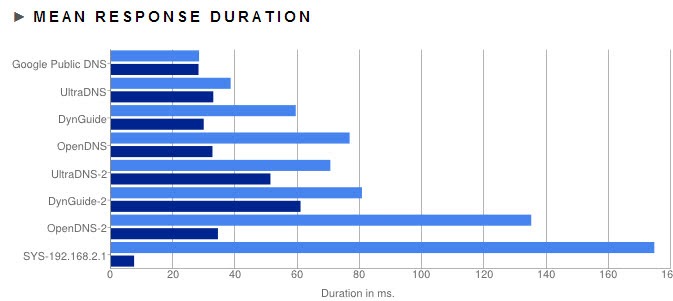Namehelp: improve public DNS web performance

Public DNS services have been around for several years, but they took really off in 2009 when companies such as Google started to enter the market. The Google Public DNS service is but one of the many services that Internet users can switch to if they suspect that the DNS service offered by their Internet Service Provider is lacking in one regard or the other.
There are three main reasons why users consider switching providers. Switching to a public DNS service can improve performance, privacy and security, and provide the means to bypass DNS-based Internet censorship.
Programs for various operating systems were created in the last three years to measure the performance gains of various DNS providers to find the best suitable one performance-wise.
According to a recent study by researchers from Northwestern University, public DNS services may impact the web browsing experience in a negative way. Most services use so called content distribution networks to reduce the connection time of users of the service. This is done by using servers in different locations, so that users can connect to the server nearest to their location and not one at the other end of the world.
And it is those CDN services that may cause a problem for some users. The researchers discovered that public DNS services may use bad redirects so that users do not connect to the nearest CDN but servers that are farther away from the user's location.
Namehelp, a program for Windows, Mac and Linux, was created to improve the user's web performance by up to 40%. You need to map the network adapter's (or router's) DNS to 127.0.0.1 after program installation before you can get started. Note that changing the network adapter's DNS servers requires a restart before the changes become active on the system.
Namehelp starts to run benchmarks to determine the best DNS configuration that helps to improve web performance the most. The generation of statistics takes a while before you find information about the DNS and HTTP performance listed on the dashboard.
You can also run manual benchmarks from the dashboard to find out which public DNS server is the fastest in the test. You will end up with a recommended DNS configuration and information how much faster or slower the connection will be if you make the switch.
The program supports several popular public DNS solutions including Google Public DNS, Ultra DNS, Open DNS or DynDNS. Anonymous information about the benchmarks are submitted to the researchers. If you do not want that to happen, disable the option under Settings on the Dashboard.
It needs to be noted that Namehelp only looks at performance, and not at privacy or security related features the public DNS services offer. It is recommended to take those at least into consideration before you switch your DNS server.
Keep in mind that we are talking about milliseconds here. While this still adds up in the long run or when using applications or services that require realtime data transfers, it usually means saving a couple hundred milliseconds per connection tops, and that only if the current DNS provider is rather slow.
Advertisement




















Info not included in the review(this comment Jan 2018)
If it finds that you are receiving less than optimal Web performance,
Namehelp automatically fixes it
by cleverly interacting with DNS and CDNs to ensure you get your content from the nearest possible copy.”
How is namehelp different from other benchmark tools?
Other benchmark tools such as “namebench” and “DNS Benchmark” focus on comparing the performance provided by different DNS servers and recommending a particular DNS server configuration.
In addition to this feature, namehelp provides several others as well, including:
Automatic DNS server configuration, based on the sites you visit most.
Smart caching techniques so that your most-visited sites can always be resolved instantly.
Better handling of DNS outages — namehelp quickly switches over to another server.
How can I configure namehelp to serve multiple computers on my network?
By default, namehelp only responds to DNS queries from the computer it runs on.
To change this, edit the “namehelp.cfg” file in the namehelp directory. In the “[dnsproxy]” section, change the line that starts with bind= to bind=0.0.0.0
After making this change, either restart your computer or restart the namehelp service. At this point, you can configure the IP address of the server running namehelp as the DNS server for other machines on your network.
Namehelp: don’t know who this people are…
As for Google, even if they had the best dns servers in the world I wouldn’t use them for other reasons…
My humble opinion.
Last time i used an automatic tool that searches for the fastest DNS and chose one for me it was led by those hackers which will automatically make you do the DNS connected to them hacked ones and they can access blahblah as it was also features in Lifehackers got really shoocked at the time lol but now it’s sorted nee a safe way or just stick with my current defauly sky dns
“map the network adapter’s (or router’s) DNS to 127.0.0.1 after program installation”
Why would I change DNS on the router when this “proxy” is installed locally?
Another excellent (and free) tool for analyzing the fastest DNS servers for a user’s location is Steve Gibson’s DNSbench. It is a robust DNS benchmarking utility that can be highly recommended. I look forward to comparing results between DNSbench, and Namehlep. Thanks for the review.